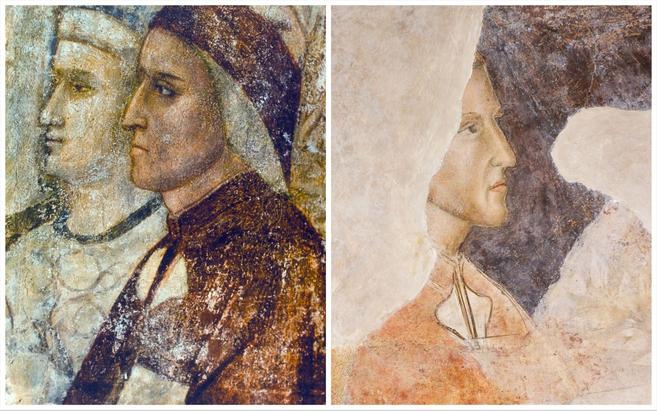
No document remains about the life of faith of the Florentine poet.Does he often ask?He said the divine offices with companions?Does he prefer to meditate in the withdrawal of his room?He participates in the veneration of the Blessed Sacrament, as well as the use begins to develop at the beginning of its 14th century, after a particular devotion to the Eucharist has been encouraged since the institution of the Corpus Christiby Pope Urban IV in 1264?
→ File.Dante Alighieri: our file on this Italian poet
If he keeps any modesty on his practice, the writings of Dante, however, testify strongly to his faith, his taste for the psalms, his extensive theological knowledge, his commitment to the Church.For him, she is "the wife of Christ": "Among the flock to the pastures of Jesus Christ, certainly I am the least, he said.It is therefore not by the grace of riches but by the grace of God that I am what I am, and "it is zeal for his house that devours me" "(epistle XI).
This zeal and its indignation towards a part of the clergy perhaps indirectly explain why laughter, very far from the expression of futility, occupies in its commedia a place apart.In his medieval time, many Catholics are wary of laughter, perhaps moving away from the evangelical simplicity of the joyful "yes" of Mary, and the humor of Jesus.Thus Dante shows great boldness by celebrating laughter in his poem, as a testimony of the joy in the love of God.He is also a palpable mark of the lightness that the author breathes into his text as his steps and his words bring him closer to the heights of paradise.Arrived there, the bright laughter of Beatrice reveals itself as the engine of all spiritual and beatific elevation.
An aspiration for contemplation

If we do not know the life of prayer of the poet, one cannot doubt his aspiration to contemplation.She even seems to appear for him the horizon of all life, when he enjoins every man to seek his life on two supports: "The bliss of this life, which consists in the implementation of his own virtue and isrepresented by earthly paradise;and the bliss of eternal life, which consists in the enjoyment of the vision of God ”(Monarchy III).
Unique work by the metamorphosis that its language operates, a work which, like paradise itself, only gives itself at the cost of a demanding path, the divine comedy offers in its own way a path to contemplation.Like the traveler over the three reigns, the reader must agree to do a work of counting, cross his own dark forest before being able to join the light.Knowing how to welcome, listen, lower the neck, fold the knee, be transformed by reading ... The work is eminently complex, rich in multiple senses.Everyone will therefore find the translation of the Italian which offers for him the best access, a subjective and personal choice as are also spiritual sensitivities.
Regarding Dante's reading experience, the theologian Romano Guardini speaks of the power of an "experience that, coming from the heart, radiates in the mind and, at the same time, shakes all the bodily being".For the philologist Erich Auerbach, "Dante is this poet who carries in the eternal man, the world, history, all existence, without the finished form vanishing.It is transformed, but it is maintained ".And for translator Jacqueline Risset, "Reading Dante, is probably each time touching the finger in her own experience the germinal point from which all things take shape, any process is present and accelerates".
Next episode Thursday August 26: Paradise found
All the bibliographic sources of this story can be viewed at the bottom of the article.
→ Play!Writing contest: in Dante's footsteps







